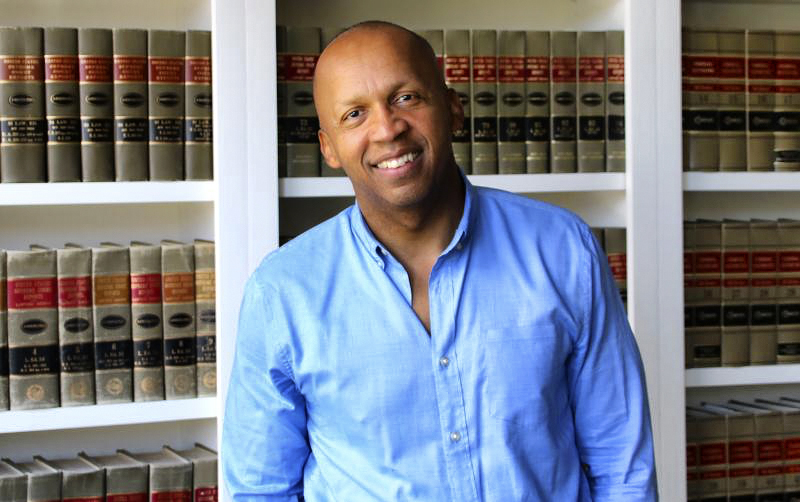Bryan Stevenson has come a long way since being born on what he has described as the "wrong side of the tracks" in Milton. "Wrong side of the tracks" isn't just a metaphor for Stevenson. The "wrong side" meant the least desirable land, where people of color lived. Stevenson's father, the late Howard Stevenson Sr., well known as the friendly ticket-taker at Movies at Midway, graduated from a segregated high school.
Stevenson himself attended a segregated elementary, later graduating from Cape Henlopen High School, where he was student body president.
Since then, he's continued his upward rise, graduating from Harvard Law School, arguing cases before the U.S. Supreme Court, and writing a best-selling book. This spring, the agency that he founded, the Equal Justice Initiative, opened the Legacy Museum and the National Memorial for Peace and Justice, both in Montgomery, Ala.
Stevenson and his museum received nationwide coverage, including an interview with Oprah Winfrey on "60 Minutes." But his story begins here. On April 26, at the opening ceremonies in Montgomery, Stevenson told of one of his early, most formative experiences. It took place at Prospect AME Church in Georgetown, which he attended as a boy with his family.
One Sunday, when he was about 10, he said, he "saw a little boy I had never seen before ... I turned to him. I said, 'What's your name? Where are you from?'" But the boy had trouble answering. He had a speech impediment. "And when he couldn't get his words out, I did something really ignorant. I laughed.
"And my mother saw me laughing at this little boy. And she gave me this look I had never seen before. She came across the room and she pulled me aside and she said, 'Bryan, don't you ever laugh at somebody because they can't get their words out right. Don't you do that.'"
But his mother wasn't finished. "She said, 'You go back and tell that little boy you're sorry.'"
Stevenson answered "OK," in the grudging manner of little boys everywhere being told do something they don't want to do.
His mother stopped him again. "'After you tell that little boy you're sorry, I want you to hug that little boy.'"
Stevenson said he rolled his eyes and agreed, but his mother had one more command. "'After you hug that little boy I want you to tell that little boy you love him.'" This was too much. "I said, 'Mom, I can't go over there and tell that little boy I love him.' But she gave me that look."
So he went over and, in his embarrassment, he stumbled and fumbled himself through his words, finally telling the boy, "as insincerely as I possibly could," that he loved him. And then something extraordinary happened. "He whispered flawlessly in my ear. He said, 'I love you, too.'"
Stevenson recalled the incident many years later, when a client, a condemned man, called him one last time. Stevenson had saved others on death row, but not this man. Still, the man, mere minutes from execution, called to thank him for his efforts.
Like the little boy from long ago, this man too struggled with words, but was finally able to say, "'I want you to know I love you for trying to save my life.'
"He hung up the phone," Stevenson recalled. "They pulled him away. They strapped him to a gurney and they executed him."
"I got off the phone and said, 'I can't do this any more.'"
But, of course, he has continued his work and his mission. And it began with a lesson in empathy he learned nearly 50 years ago from his mother, Alice Stevenson, at their family church in Georgetown.






















































